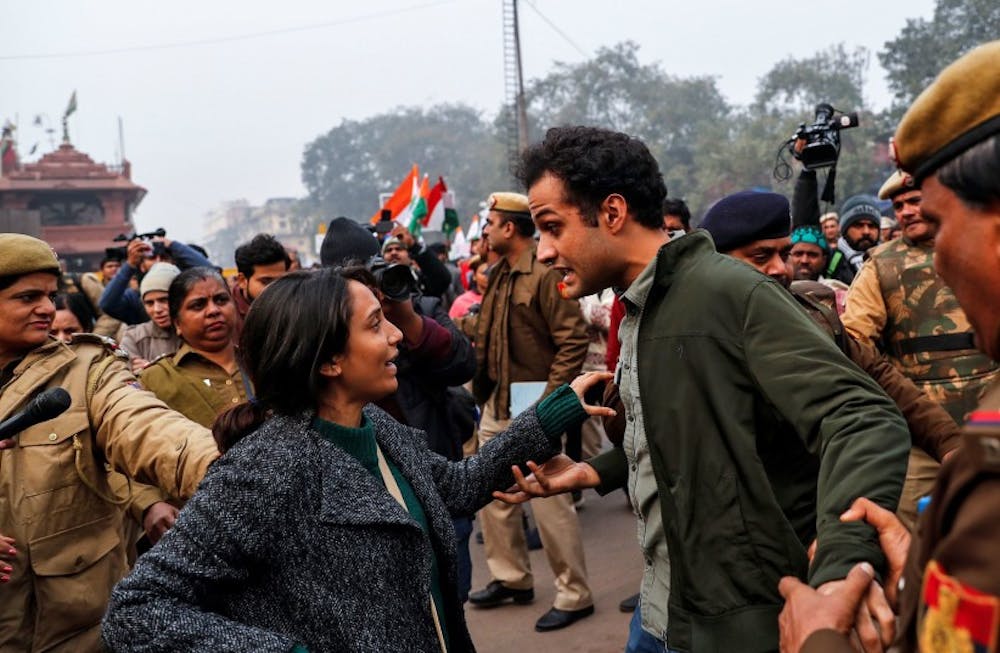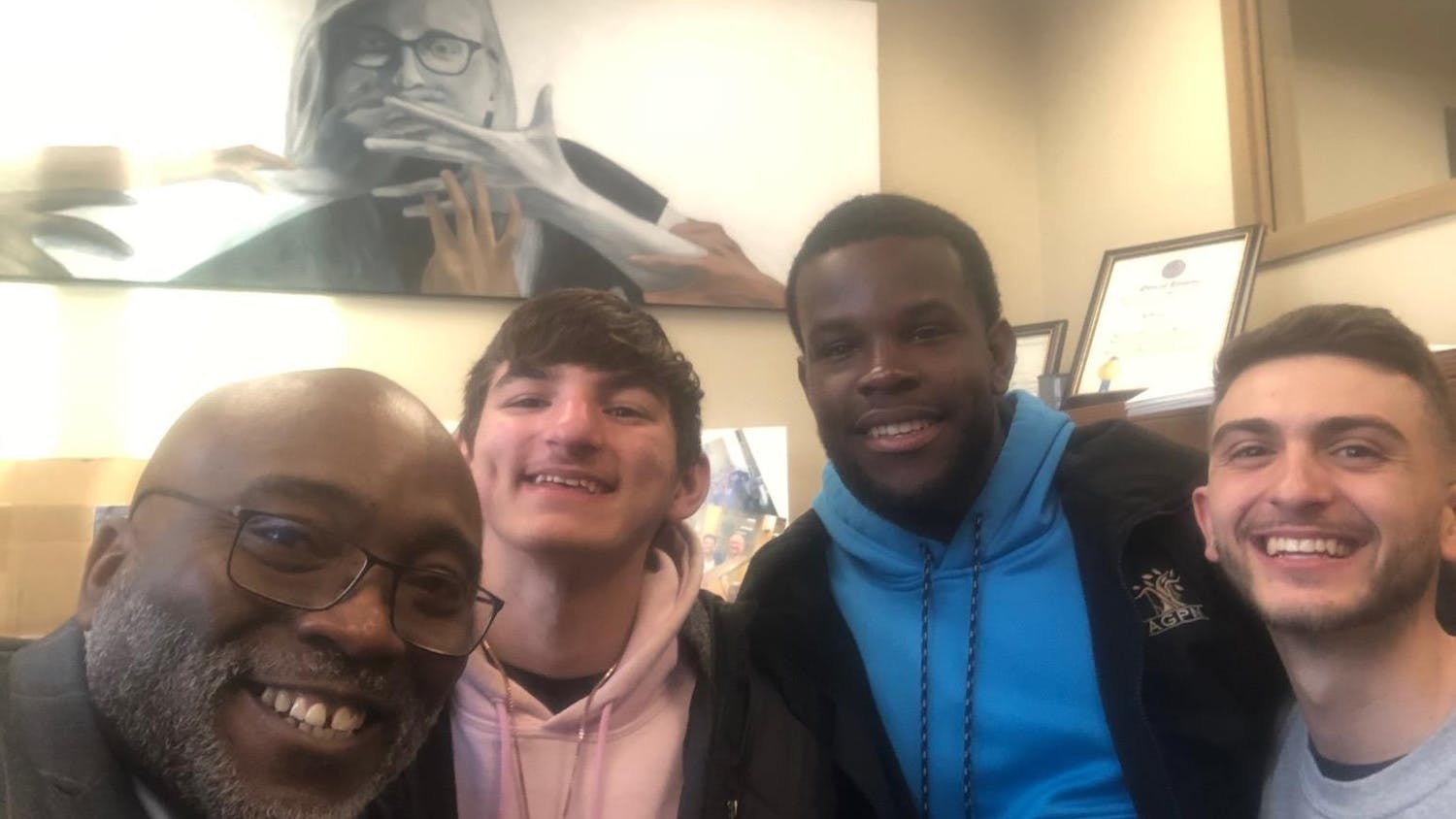Amidst President Trump’s visit and a controversial citizenship law, India is in turmoil.
According to The Washington Post on Feb. 29, 42 people have been killed and hundreds more wounded in the capital city.
“For years we have been praying for the country and its governance,” said freshman Joanna Vasudevan, who is from Mumbai, India. “Things have escalated so much that it makes me sad to see my country associated with such injustice and hate.”
While religious tension has been ongoing in India, the current outbreak is due to a citizenship law that was amended in December 2019.
Previously, the Indian Citizenship Act of 1955 provided a path for illegal migrants of persecuted religious minorities to receive citizenship through due process. However, the Hindu Nationalist Bharatiya Janata Party (BJP) recently amended the law to include more naturalization benefits, but excluded Muslim minorities.
"The BJP (led by Prime Minister Narendra Modi) is the political face of Hindu nationalism in India," said Nikita Sud, associate professor of development studies at the University of Oxford. "[For traditional Hindu nationalists,] a Hindu is someone who considers India to be their homeland and their motherland and the land of their religion. So, the Holy Land and the motherland is, by definition, leaving out, say, Muslims or Christians who might well consider India their motherland and they might be born in India.”
Opponents of this amendment say that religion should not be a factor for citizenship.
In response, the BJP National General Secretary Ram Madhav defended the amendment by adding that no country in the world condones illegal immigration.
“For all others about whom the bleeding hearts are complaining, Indian citizenship laws are there,” Madhav said. “Naturalised citizenship is an option for others who legally claim Indian citizenship. All other illegal (immigrants) will be infiltrators.”
With the amendment, however, the government also broke ground on five additional facilities to house illegal immigrants. Camps are set to include a housing facility, school and hospital, all of which are enclosed by walls and monitored by watchtowers.
Consequently, unrest has broken out into protest and religious conflict. However, these issues were unaddressed during Trump’s quick 36-hour trip to India during the last week of February.
For Modi, this came as a win for normalizing the new amendment in the country. The BJP wants to continue marching forward with the nationalist agenda, with Modi’s adviser and India’s the BJP Party President Amit Shah even describing migrants from the Muslim majority in Bangladesh as termites during a 2019 campaign rally.
Some worry that this environment will create a repeat of the 1984 Sikh Massacre in Delhi, where the government organized riots against Sikhs following the assassination of Prime Minister Indira Gandhi by her Sikh bodyguards. The government reported nearly 3,000 Sikhs were killed in Delhi, but other sources estimate a death toll ranging from 8,000-17,000 Sikhs.
Because of the government’s inflammatory comments, amendment and plans to create internment camps, many people report that the current situation is ripe for something similar or worse.
The Washington Post reports that the current violence has included everything from gunfire to swords to burning people alive. They also question India’s police and government involvement with the violence, but there are no conclusive reports of organized violence.
While both Muslims and Hindus have participated in the violence, the Wall Street Journal reported that the majority of the violence has been from Hindus toward Muslims.
“It’s as if evil had pervaded and housed itself in the hearts of the mob,” Dr. M.A. Anwar, a clinic doctor, told The Washington Post.
Although the conflict exists across the world, it is not disconnected from Taylor’s community.
“In the months since I came to Taylor, it has been so easy for me to forget about the rest of the world, and just live in this community,” Vasudevan said. “I realize that this is something that not only I struggle with … It is important for us to be aware and pray for all these things, and to not be content or comfortable in our own situation.”
According to Edwin Welch, director of institutional research and associate registrar, there are currently four students from India studying at Taylor.
Freshman Sumana Wiig, who is from south-central India, said her predominantly Muslim hometown has had relatively peaceful protests, but still worries about the potential for violence.
“Hearing about this conflict is just really agonizing to me,” Wiig said. “The actions of these Hindu nationalists are just so brutal and barbaric that it makes me wonder what caused this sudden uproar and hatred ... Sadly, even before these riots, the Muslims were already being targeted and this citizenship law just precipitated their violent actions.”
Taylor also has numerous alumni located in India.
Andi Eicher ('92) works with his wife Sheba in a hospital in eastern India, which has not experienced much violence. However, Eicher said the environment often only takes one spark to start something bigger. Specifically, he finds it troubling that police do not seem to be intervening in the conflict.
“You can pray that God will embolden police and judicial officers to make the hard choices to go and impose law and order,” Eicher said. “Pray also that post-riot there will be justice for the victims and that the oppressors will be convicted. Sadly, as a nation, we have a poor track record in restorative justice.”
Both Wiig and Eicher asked the Taylor community to pray for India’s people and leaders.
Reflecting on the struggle between political and religious groups, Wiig mourned the attack on India’s unity in diversity. However, she also points to it as a reminder that there can be repentance and reconciliation.
“We have a national pledge that we often say in schools or other national events,” Wiig said. “Two of the lines in the pledge say, 'India is my country and all Indians are my brothers and sisters. I love my country and I am proud of its rich and varied heritage.’ I remember feeling those words with people. A large part of our identity lies in our diversity and we promise to love in brotherhood and sisterhood despite our differences. It's really sad to see our country forget the values we built our country upon.”





